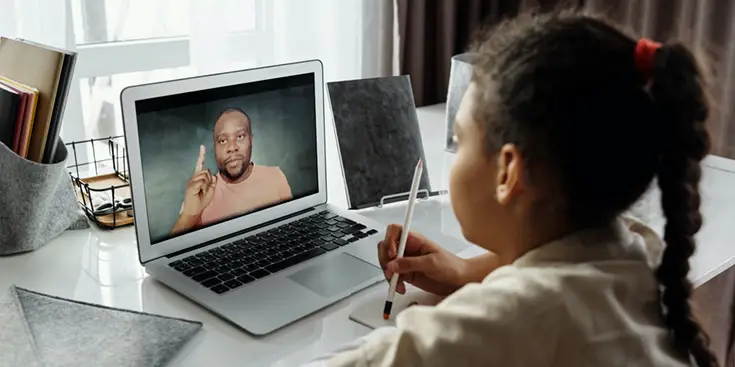In this article Anna Polunina, methodologist of programs "Design" of the educational portal GeekBrains, told about what qualities are important for an expert who wants to become an online teacher.
What does a methodologist do?
Immerses you in the learning process. The methodologist of educational programs - a person who helps experts and teachers to create content and design the experience of the student. It can be a whole course, a specific lesson, a separate unit or a practical task that the instructor wants to give students. Each unit we talk about is not created in a vacuum, but is related to other elements of the program. Often, experts without experience in education come to us. The task of the methodologist is to tell us what the student lives and what place in the courses, to immerse him/her in the process of learning.
In educational design courses there are different lengths of blocks - there can be four, eight or twelve, depending on the purpose of training. And within one block, lectures can be delivered by several teachers. This risks resulting in a situation where experts on the same topic simply do not understand what the student is going through. The methodologist helps to correct this: immerses the expert in the training so that he could clearly understand at what stage of the course students are now, what they have passed and will pass. This is important: if the expert is not completely immersed in the course, the student has the impression that the teacher does not care what happens to him or her.
He works with feedback. In addition to experts and teachers, the methodologist works with students - analyzes feedback. The course manager talks to them and finds out where in the program they are "hurt". And the teacher and I think about how to make the program better. In general, we try to think in advance about what pain students may have, and solve it with additional materials and tools like software and mockups (like this box mockup): from what awaits students in the next course, to working out the feelings that the student is now experiencing. If we feel that students are worried, we say: "Fear is normal, let's deal with you". This is the story of a student's life strategy and goal setting: we help students understand why they are coming to the course.
It's okay if the student understands that design is not his and wants to move to another direction or leave at all. We accept this and help the student to make a choice for his development, we do not think about business at such moments.
Ways to find a teacher
Where can I find a teacher? By recommendation. Guys from HR usually get a request for a specific expert. They take into account the nuances of the industry, for example, the type of community - it is different in programming, marketing, design, advertising. Sometimes it is more closed, and then it is harder to find a teacher. And sometimes it is more open, and in this case it is easier to find specialists who are ready to teach. We are always ready to accept new experts who feel the strength to share their knowledge.
More often than not, we find teachers ourselves. Most of the time, experts are referred to or recruited by those who are heard in the industry. Although fame is not important in all areas.
We select future teachers.
There are several criteria for choosing an expert:
- Respect. We had precedents when the Expert Advisor constantly interrupted and did not let us finish a single phrase. It is important for us to be on equal terms with the teacher. If at the first meeting, when we have no relations, no mutual respect, it will be difficult to build them further.
- Adequacy. In the most trivial sense. A person reacts calmly to criticism, not explodes. To check this, we sometimes ask questions about stressful situations: "Imagine that the Internet fell off during your class. What are you gonna do?" We always have insurance, of course, but it's important to understand how a person will react if something goes wrong.
- The right expectations. A person must be clear about where he or she is going and understand that there will be a lot of work to do. Inadequate expectations can provoke phakapas.
- The ability to tell. I analyze how easy it is for a person to transfer information from his or her head to another person (in this case, mine), whether he or she enjoys the work. Since in the future it will be necessary to talk about it a lot and in detail, with closed or tacit colleagues we will have a long way to teaching.
After the first meeting, when we understand that we are right for each other, we go further - we go deeper into the program.
The birth of an expert teacher
- We are looking for a new speaker with the help of HR, sundress radio and profile websites.
- We start the first meeting where we talk about each other: the speaker talks about his experience and motivation, we talk about the project, his mission and conditions.
- After the mutual match we start to learn: we study methods of course construction, cognitive psychology, work with feedback and prevent burnout.
- We spend several sessions of 2.5-3 hours on building the upper level of the course.
- We think over and finalize the lessons, practical tasks and logic - we lay down a few more sessions.
- We test and roll out the program, analyze and correct.
- We start the course and constantly adapt it to each group. Success!

